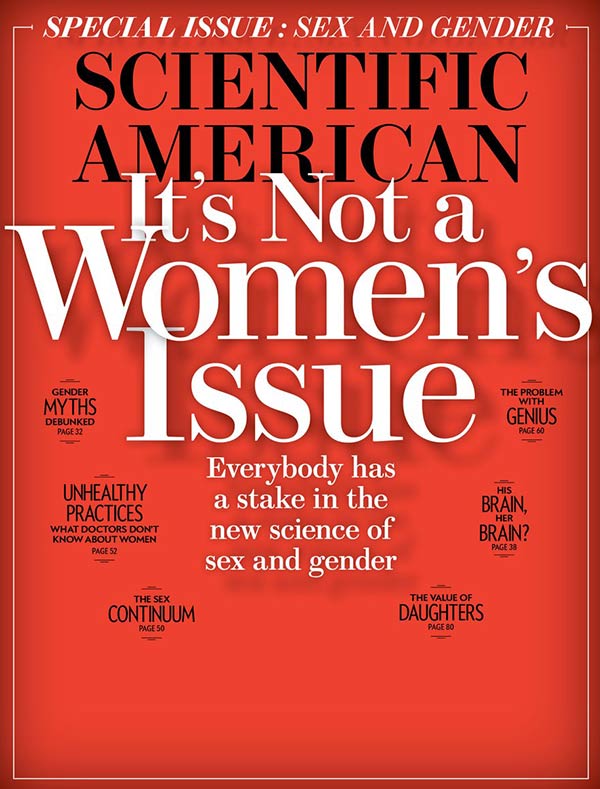A Response to George Ellis’s Critique of My Defense of Moral Realism
This article appeared in Theology and Science in December 2017.
I am deeply appreciative that University of Cape Town professor George Ellis took the time to read carefully, think deeply, and respond thoughtfully to my Theology and Science paper “Scientific Naturalism: A Manifesto for Enlightenment Humanism” (August, 2017),1 itself an abbreviation of the full-throated defense of moral realism and moral progress that I present in my 2015 book, The Moral Arc.2 As a physicist he naturally reflects the methodologies of his field, wondering how a social scientist might “discover” moral laws in human nature as a physical scientist might discover natural laws in laboratory experiments. It’s a good question, as is his query: “Is it possible to say in some absolute sense that specific acts, such as the large scale massacres of the Holocaust, are evil in an absolute sense?”
Pace Abraham Lincoln, who famously said “If slavery is not wrong, then nothing is wrong,”3 I hereby declare in an unequivocal defense of moral realism:
If the Holocaust is not wrong, then nothing is wrong.
Since Professor Ellis is a physicist, let me approach this defense of moral realism from the perspective of a physical scientist. It is my hypothesis that in the same way that Galileo and Newton discovered physical laws and principles about the natural world that really are out there, so too have social scientists discovered moral laws and principles about human nature and society that really do exist. Just as it was inevitable that the astronomer Johannes Kepler would discover that planets have elliptical orbits—given that he was making accurate astronomical measurements, and given that planets really do travel in elliptical orbits, he could hardly have discovered anything else—scientists studying political, economic, social, and moral subjects will discover certain things that are true in these fields of inquiry. For example, that democracies are better than autocracies, that market economies are superior to command economies, that torture and the death penalty do not curb crime, that burning women as witches is a fallacious idea, that women are not too weak and emotional to run companies or countries, and, most poignantly here, that blacks do not like being enslaved and that the Jews do not want to be exterminated. Why? […]
To continue reading this article, download the PDF.
Download the PDF
Comments Off on Mr. Hume: Tear. Down. This. Wall.
Why “outcasting” works better than violence
After binge-watching the 18-hour PBS documentary series The Vietnam War, by Ken Burns and Lynn Novick, I was left emotionally emptied and ethically exhausted from seeing politicians in the throes of deception, self-deception and the sunk-cost bias that resulted in a body count totaling more than three million dead North and South Vietnamese civilians and soldiers, along with more than 58,000 American troops. With historical perspective, it is now evident to all but delusional ideologues that the war was an utter waste of human lives, economic resources, political capital and moral reserves. By the end, I concluded that war should be outlawed.
In point of fact, war was outlawed … in 1928. Say what?
In their history of how this happened, The Internationalists: How a Radical Plan to Outlaw War Remade the World (Simon & Schuster, 2017), Yale University legal scholars Oona A. Hathaway and Scott J. Shapiro begin with the contorted legal machinations of lawyers, legislators and politicians in the 17th century that made war, in the words of Prussian military theorist Carl von Clausewitz, “the continuation of politics by other means.” Those means included a license to kill other people, take their stuff and occupy their land. Legally. How?
In 1625 the renowned Dutch jurist Hugo Grotius penned a hundreds-page-long treatise originating with an earlier, similarly long legal justification for his country’s capture of the Portuguese merchant ship Santa Catarina when those two countries were in conflict over trading routes. In short, The Law of War and Peace argued that if individuals have rights that can be defended through courts, then nations have rights that can be defended through war because there was no world court. (continue reading…)
read or write comments (18)
Does it come from talent, hard work—or luck?
At a campaign rally in Roanoke, Va., before the 2012 election, President Barack Obama opined: “If you were successful, somebody along the line gave you some help. There was a great teacher somewhere in your life&8230; . Somebody invested in roads and bridges. If you’ve got a business—you didn’t build that. Somebody else made that happen.”
Although Obama was making a larger point about the power of collective action, such as building dams, power grids and the Internet, conservative heads exploded at the final sentiment. “I did build that!” is an understandable rejoinder to which I can relate. I research my books, edit my magazine, teach my courses and write these columns (this one is my 200th in a row for Scientific American). If I don’t make them happen, nobody else will.
But then I started thinking as a social scientist on the role of circumstance and luck in how lives turn out. It’s a sobering experience to realize just how many variables are out of our control:
(continue reading…)
Comments Off on What is the Secret of Success?
Is belief in aliens a religious impulse?
In Star Trek V: The Final Frontier, Captain James T. Kirk encounters a deity that lures him to its planet in order to abscond with the Enterprise. “What does God need with a starship?” the skeptical commander inquires. I talked to Kirk himself—William Shatner, that is—about the film when I met him at a recent conference. The original plot device for the movie, which he directed, was for the crew to go “in search of God.” Fearful that some religious adherents might be offended that the Almighty could be discoverable by a spaceship, the studio bosses insisted that the deity be a malicious extraterrestrial impersonating God for personal gain.
How could a starship—or any technology designed to detect natural forces and objects—discover a supernatural God, who by definition would be beyond any such sensors? Any detectable entity would have to be a natural being, no matter how advanced, and as I have argued in this column [see “Shermer’s Last Law”; January 2002], “any sufficiently advanced extraterrestrial intelligence [ETI] is indistinguishable from God.” Thus, Shatner’s plot theme of looking for God could only turn up an ETI sufficiently advanced to appear God-like. (continue reading…)
read or write comments (26)
The roots of the current campus madness
In a 1946 essay in the London Tribune entitled “In Front of Your Nose,” George Orwell noted that “we are all capable of believing things which we know to be untrue, and then, when we are finally proved wrong, impudently twisting the facts so as to show that we were right. Intellectually, it is possible to carry on this process for an indefinite time: the only check on it is that sooner or later a false belief bumps up against solid reality, usually on a battlefield.”
The intellectual battlefields today are on college campuses, where students’ deep convictions about race, ethnicity, gender and sexual orientation and their social justice antipathy toward capitalism, imperialism, racism, white privilege, misogyny and “cissexist heteropatriarchy” have bumped up against the reality of contradictory facts and opposing views, leading to campus chaos and even violence. Students at the University of California, Berkeley, and outside agitators, for example, rioted at the mere mention that conservative firebrands Milo Yiannopoulos and Ann Coulter had been invited to speak (in the end, they never did). Middlebury College students physically attacked libertarian author Charles Murray and his liberal host, professor Allison Stanger, pulling her hair, twisting her neck and sending her to the ER. (continue reading…)
read or write comments (2)





